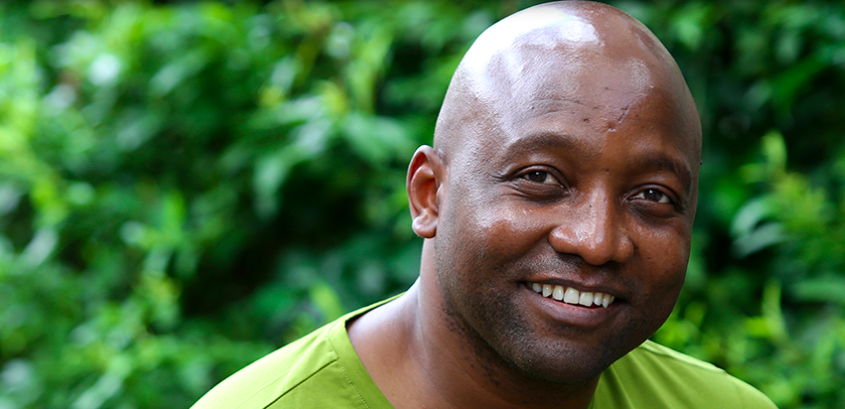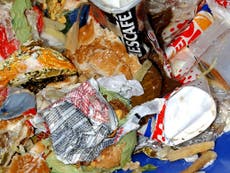It’s nature, stupid! A new deal for nature will improve the economy and wellbeing
In pursuit of wealth creation and economic development we are destroying the very nature we depend on - this must change, says Maxwell Gomera

New findings on diet once again threaten to turn conventional wisdom on its head. The major review commissioned by the World Health Organization found that eating more carbohydrates (of the high-fibre sort), is not only good for your heart, but also better for your health than a low-carb diet favoured by many. As such, the new research is bound to fuel the diet wars that have left many consumers indifferent on dietary choices.
While guidance on what to eat changes frequently, this fundamental issue does not: we have a basic lack of choice in our food systems. Despite the overabundance of branded products on supermarket shelves, we live in a world where our choices about the food that we eat and how it’s produced have been mostly preordained. They are limited by an agricultural system that operates with little consideration of its impact on nature. Yet, how we produce and distribute our food is just as important to our long-term health and well-being as is the foods we consume.
The reality is that mundane everyday food choices—often influenced by misleading marketing— feed an agricultural system that is driving the large-scale degradation of nature while also directly undermining human health. Our daily decisions, limited as they are by the agricultural system itself, cascade into formidable environmental challenges.
Indeed, the state of nature – its ecosystems and the biodiversity contained within them – is in steep decline. In the last 40 years alone we have done more harm to nature across the planet than at any other period in our history. Runaway human consumption—above and beyond that associated with population growth—islargely to blame. The rising global appetite for meat has promptedwidespread destruction of natural habitats to create farmland for grazing and production of grain and soya for livestock consumption.
These patterns have contributed to a 60 percent decline in wildlife populations since 1970. They are fuelling high land conversionrates and unsustainable encroachments on nature. Approximately 71 percent of rainforest conversion in South America has been for cattle ranching and a further 14 percent for commercial cropping. Already we use more ecological resources and services each year than nature can regenerate.
This is a global crisis, calling for an ambitious agenda for actionacross all sectors of society.
Our food systems need an overhaul. Agriculture emits more greenhouse gases than all our cars, trucks, trains, and airplanes combined. It consumes a whopping 70 percent of all freshwater on earth. Runoff from fertilisers pollutes lakes, rivers, and coastal ecosystems. Agriculture also causes approximately 80 percent of forest loss. With human population growing and life expectancy increasing, these impacts are set to worsen.
But these impacts are not inevitable. They result from the failings of our economic development process. In pursuit of wealth creation and economic development, we are ironically destroying the very nature that underpins our survival and existence.
Solutions will only come when we confront the economy that is enabling this and change the way we produce our food. In 2020, world leaders meeting in Beijing will have an unprecedented opportunity to transform our relationship with nature. There they will consider a new set of commitments to protect nature. These include transition to sustainable sources of protein, improvedagricultural productivity, the elimination of unnecessary and harmful subsidies, and the use of nudge incentives for citizens to eat and live more sustainably.
Fortunately, leaders are beginning to press for action. France's President Emmanuel Macron has called for the reassessment of nature conservation efforts to meet a planetary emergency. Globally, the Convention on Biological Diversity has called for a New Deal for Nature that the world can commit to in Beijing.
This New Deal will provide Heads of State with the opportunity to ensure that our everyday economic choices do not undermine nature. It will guide policy by measuring and accounting fornature’s contributions to our economic systems, an approach that was recently championed by UN Environment’s Inclusive Wealth Report and UN Statistical Division’s System of Environmental-Economic Accounting. This approach measures nature’s previously invisible benefits, taking a first step towards managing nature for both its own good and for human welfare.
The major challenges to nature’s survival, and hence the solutions, are located across many economic sectors. As such, we need new political approaches, vision and leadership to address these economy-wide challenges. So, while the diet wars will continue, the issue will be moot if we are unable to protect the natural world upon which agriculture depends. And to do that, we need a New Deal for Nature in place by 2020. This is not just a conservation issue. It is an everyone issue.
Maxwell Gomera is a Director of the Biodiversity and Ecosystem Services Branch at UN Environment and a 2018 Fellow of Aspen New Voices. He is an expert on public investments in agriculture and nature. Twitter: @GomeraM


Join our commenting forum
Join thought-provoking conversations, follow other Independent readers and see their replies